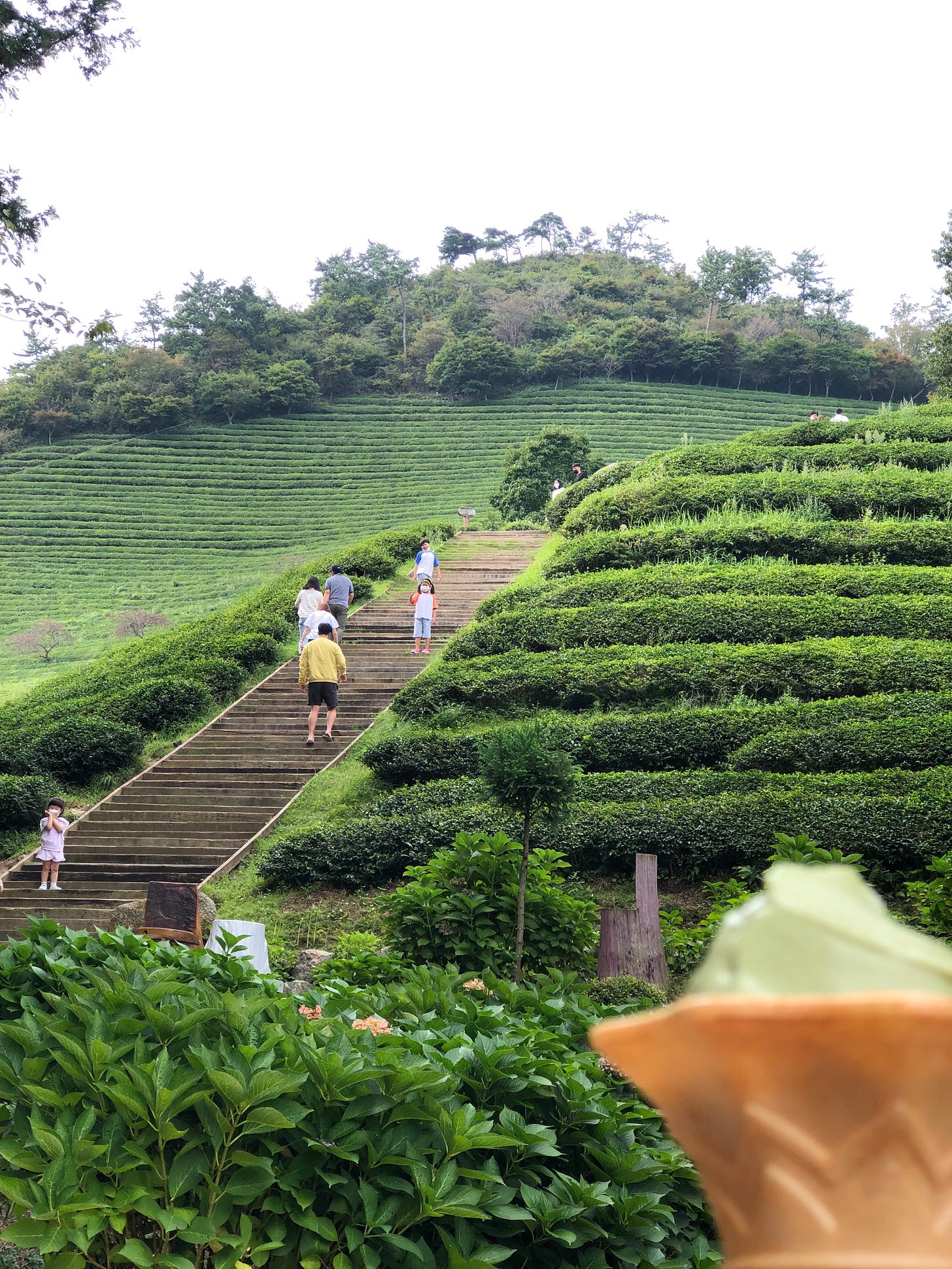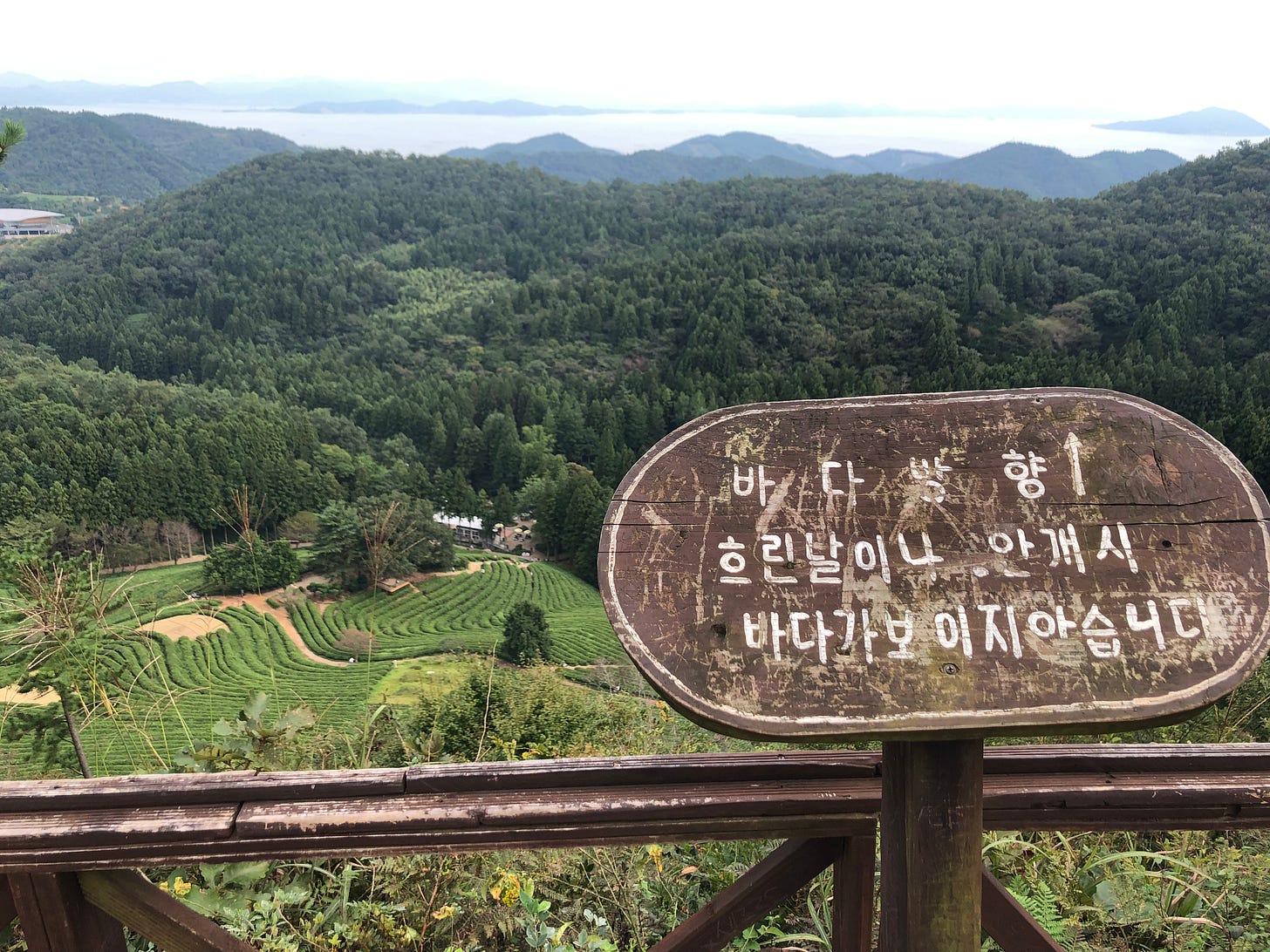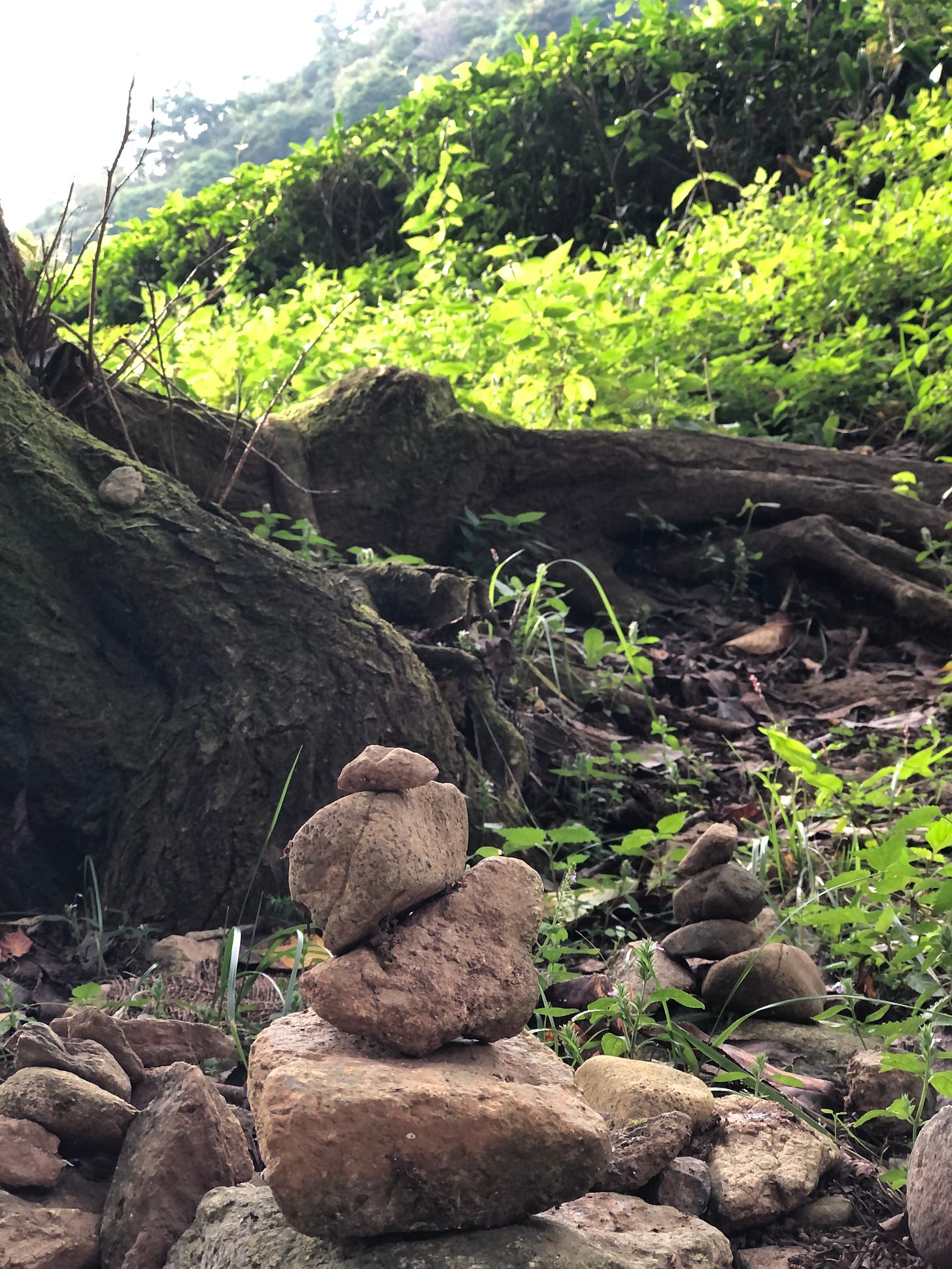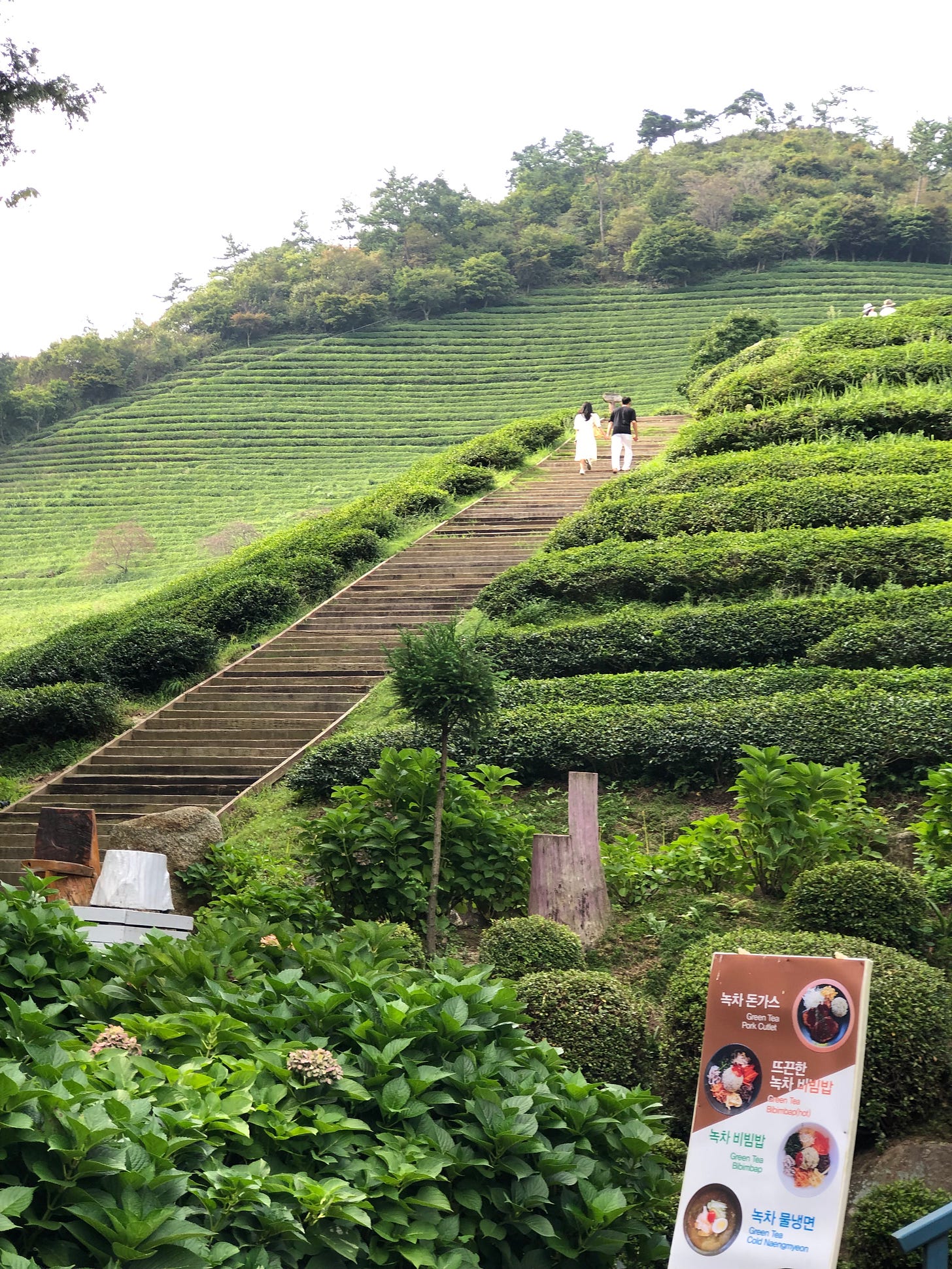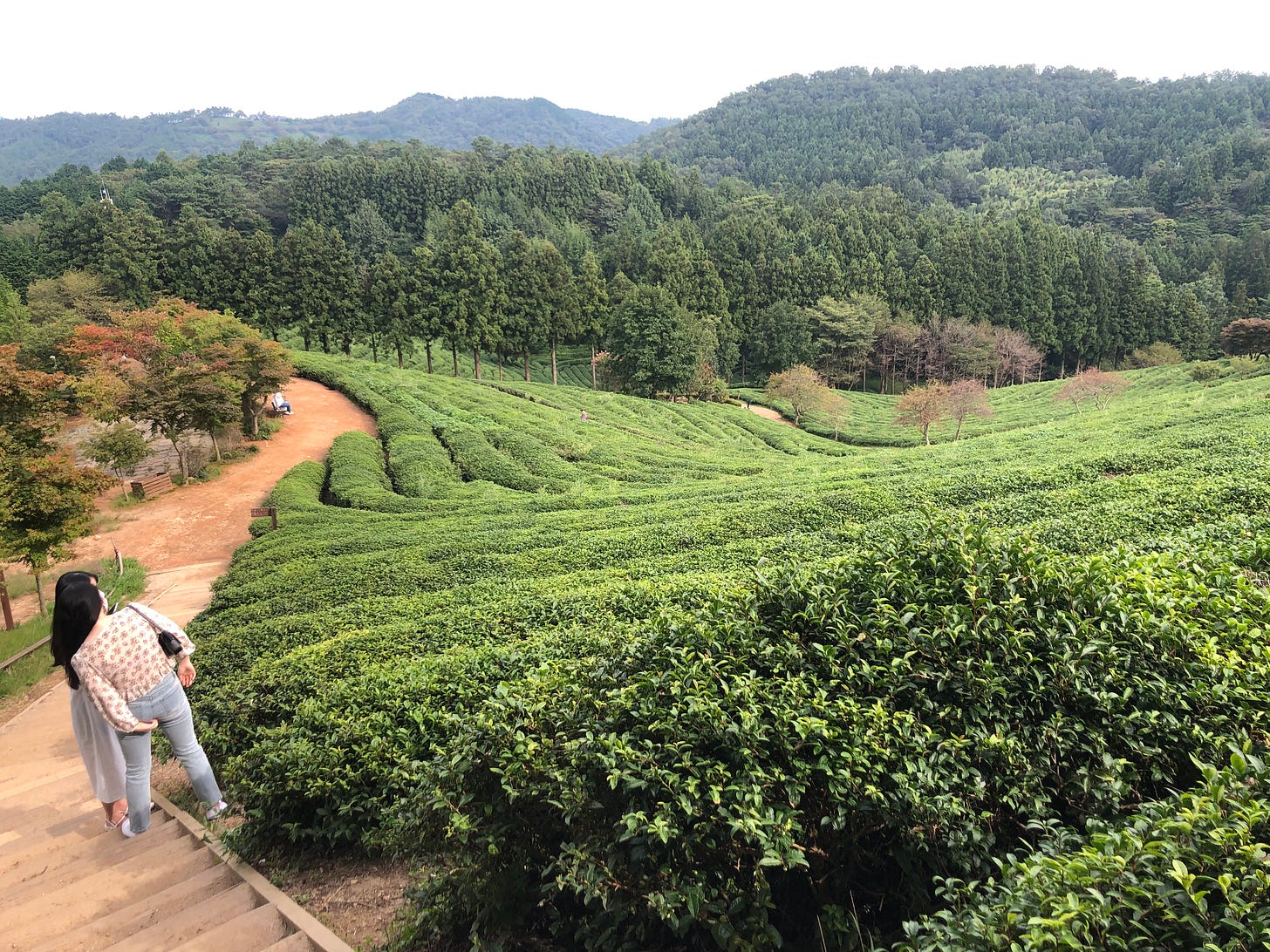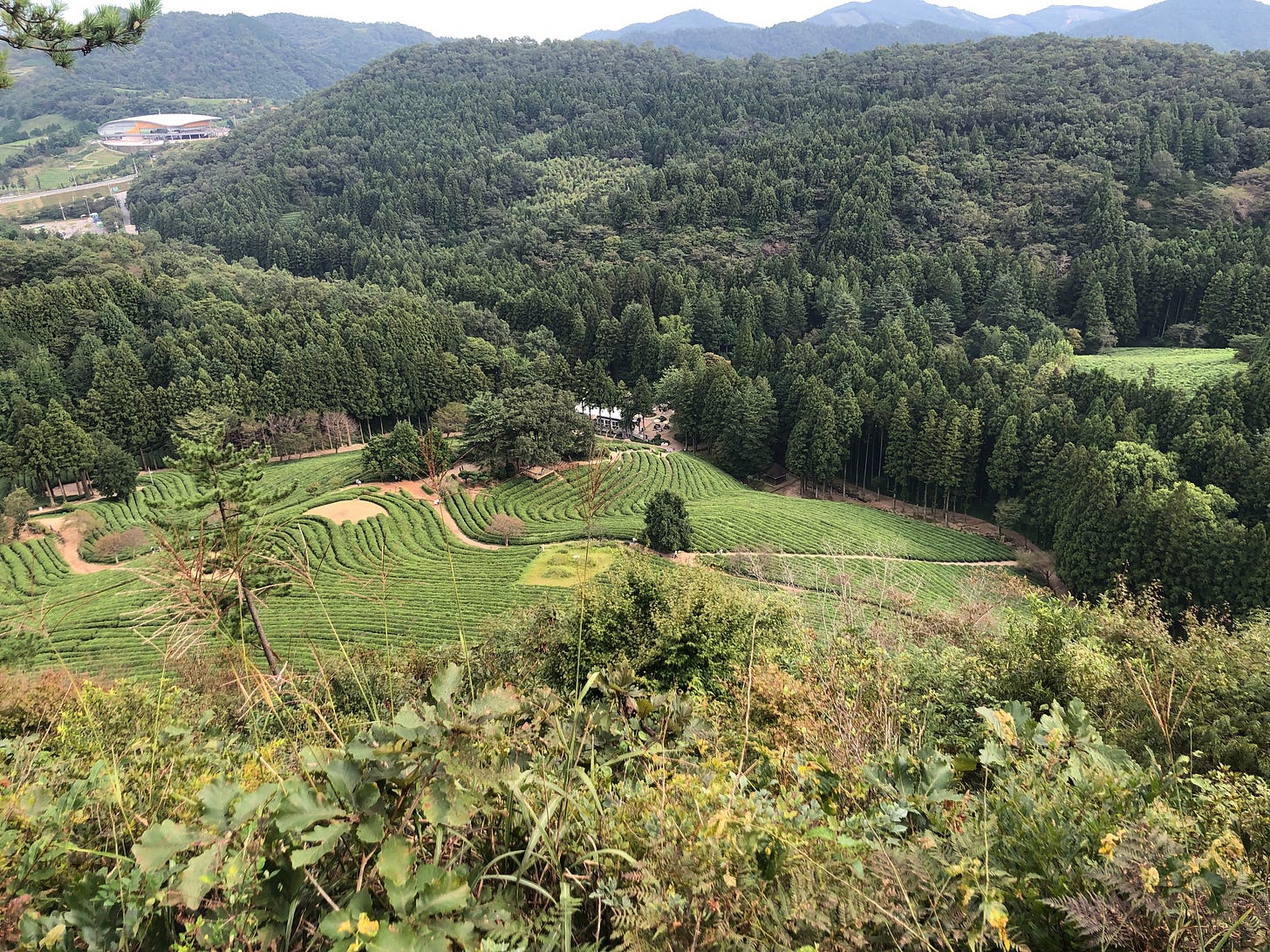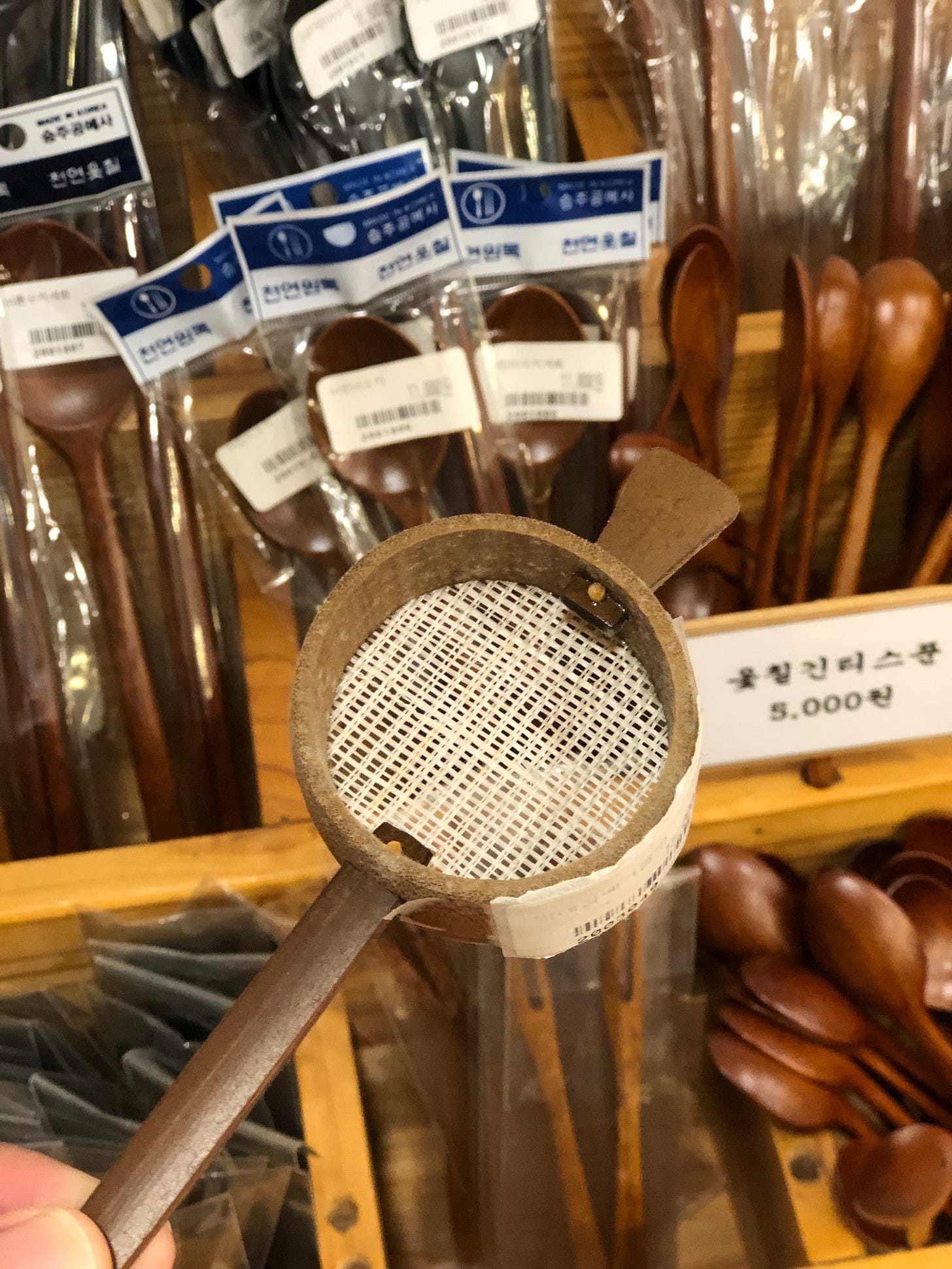In a recent post I mentioned that one must fight for their pleasure. One pleasure that I love in this life is Matcha 🍵. But not too long ago, I used to hate it.
In the summer of 2021 I returned to Seoul, South Korea after a three year hiatus. On a one-day break during my months long stay I rode in a van with a coworker and a driver that didn’t speak English. Much of the trip was filled with hours of silence as we neared our destination, the Boseong Green Tea Fields.
As part of a work requirement, the visit was meant to be a field trip. But only the Head of Engineering attended with me. I didn’t know him. He didn’t know me. And I felt agitated by the fact that a trip for ten or so people became a trip for just two. But I remained excited for the simple fact that I’d wanted to go to this place for a long time - for more than a decade.
So when we finally arrive I take my time entering through the forested area, then I grab green tea ice cream and wander off by myself to geek out about the tea fields. (Who knew? I already had a pleasure-habit of pairing hills and ice cream years ago!)
After spending a few hours walking up the stairs, around the forested parts, down the stairs, and inside to a few shops, I’m bummed that the store I’m in doesn’t sell Matcha. Instead there’s green tea cookies, cakes, and tools.
Flustered, I ask for help. The woman in the shop points the direction that I’m supposed to take to find Matcha. I wind through the forest, wave my hand in the air to dismiss the gnarly mosquitoes who’ve arrived at dusk, and I stop inside a few more shops. I don’t buy the Matcha I find. I don’t know how good it is, and I can’t ask because I still struggle to speak Korean. So, I leave empty handed, and it’s okay.
Matcha leaves are deprived of the sunlight, and forced to grow in the shade. For this they become potent.
The first time I tasted Matcha I was inside of a Green Tea cafe in Insadong, Seoul when I lived in Korea so very long ago. The cafe sold green-tea-everything. Pastries. Drinks. I knew that Matcha was famous amongst all teas. It carried a reputation for enhancing meditation, inducing a calm effect, or getting you slim - all due to its L-theanine, antioxidants, catechins, and other good stuff.
That first time I sipped the Matcha a gentle tinge of sweetness hit the tip of my tongue, and I instantly felt that I was drinking one of the most delicious tastes the world had to offer. I’d just found a brand new drink I would want to drink again and again for the rest of my life.
But then a very dramatic thing happened in the cafe and my emotional perspective on Matcha changed entirely in a flash. I looked down at the mug while tears fell from my face and told the Matcha that I hated it.
What happened? I was catapulted into my past. A childhood moment that beamed me up into confusion then, and made itself known once more - to be deconstructed. So, I left that mug of Matcha in the cafe, still three-quarters full. Walked out of the front doors.
For six years after that first cup I refused Matcha. I got my caffeine fix through black coffee instead. But in 2019 a dear childhood friend, and bonafide Matcha aficionado beckoned me to taste it again. I hesitated, feeling especially angry at this plant for its supposed connection to the doom and gloom I’d felt years before. But then I ordered the lightly sweetened Matcha Latte with alt-milk from Starbucks. When I sipped it with my friend, I swooned for the taste in delight.
“It’s good right?” She asked. I nodded yes.
That moment was the start of reigniting my relationship with Matcha, and I was clueless that such a relationship was even taking place.
Prior to 2024 I did not know that Matcha belonged in the category of plants known to be plant teachers. Plant teachers and master plant teachers are plants with psychoactive properties that help humans by imparting wisdom, expanding human consciousness, providing healing, and more. And they do so in a number of ways. Master plant teachers can impart visions, auditory messages, feeling sensations, and however else our personal body’s (or lineage) constitution can receive.
Tobacco, for example, smoked in its pure form can act as a communicator to reveal its burning, leafy-self as a reflection of the human before it - like a mirror into the person (I say this as one who’s had a Tobacco reading with a Tobacco elder).
Psychoactive substances fall into three main classes: hallucinogens, stimulants, and depressants
What makes Matcha psychoactive? L-theanine. It is psychoactive, and as an amino acid it can induce alpha wave activity in the brain. L-theanine falls into the depressant class.
But what drove me to write this particular piece on Matcha, and to share it so eagerly was based on the profound teaching that I had with a warm cup days into the second week of 2024 - days before I even knew that Matcha had components that were actually considered psychoactive.
I was sitting on my couch, in this cold of winter, and I felt this gentle, familiar nudge to buy Matcha. This is how plant teachers, and other master plants have called me. I just hadn’t categorized Matcha as a plant teacher. In fact, I hadn’t had Matcha in a long time at this point, perhaps a year.
I bought the Matcha at a beautiful tea shop within days of being called. I’d learned how to perfectly whisk the fine powder in the perfect temperature so as not to burn the antioxidants. I sipped. I did this day after day, and I felt the light buzz you get from the cup. Each day my mood jolts upward, into stinging positivity. I feel better in a way that I don’t recall I’ve ever felt with Matcha before.
I share these subtle improvements of mood that I feel with the group of women I’ve been sitting with now for about a year. We regularly meet over video, and we’ve all communed with a number of plant teachers and master plant teachers. One of the women shares, “It sounds like the Matcha is repairing that first introduction you had with it.”
I got quiet. I wasn’t sure that was the case. The next day though, I prepared the brew once more. Then I imparted a stronger ritual of reverence this time. This is how I take the tea: I speak into the cup of tea and I ask it for guidance, to show me what it needs or wants to show. Then, I sip quickly in the tradition of drinking Matcha. This is the very dreamy thing that happened next:
A whisper appears and tells me to write. I pick up my pen and start writing in a very old notebook with empty pages. I am unsure where to start, so I began penning the things I want, the things I am grateful for. Then my hand turns towards stream of consciousness - the writing pulls me into the cafe in Seoul when I first tasted Matcha. Then I have a conversation, on paper with this Matcha and it happens. Eureka! Eureka! Eureka! A tear falls down my cheek. The monster-loop, a cognitive emotive loop, is broken that began all those years before. I am amazed at the powerful lesson Matcha has just imparted to me.
In my experiences with plant teachers this is how the lesson usually goes, and it’s generally towards breaking some damaging cognitive loop I have no idea I’m in:
I am called to the plant and I go towards it.
With reverence I ask for guidance from the plant before I consume.
I consume the plant in the way it is to be consumed.
The plant guides. If I’m lost I ask questions and listen for guidance towards the answers.
Eureka!
Next, I contacted my group of ladies in the days after. I let them know I’ve just had a profound experience. And while I would love to tell you, dear reader, what I penned in that notebook, it ended up in my memoir, somehow providing the final touches on a story I thought had already been completed.
The strange thing though, is that the next day I drank the last cup of Matcha that I had available. I went to the same tea shop to get more… always wanting more. Once inside the woman told me, “We’re sold out. Japan is using all of their Matcha right now. I don’t think they’re letting any Matcha out, and I don’t know when we’ll get more in, sorry.”
I was in such shock at the woman’s update. I was also in shock at the timing. The bag of Matcha I’d just purchased had only been purchased about fourteen days prior. I returned home, sat on the couch and lamented about the fact that the plant, of this high quality, was no longer available.
I used to call myself a teacher. I taught for nine years. Retired. Only to re-enter the classroom in 2019-2020 for a tenth, incredibly shocking year.
On the first day a student looked up at me and said, “Y’all gonna make this teacher cry and quit!” Then he laughed with a bit of pity, and shook his head before he sat down.
The last day of school he waved goodbye to me for a final time and said, “You didn’t quit Ms. Chandler! You didn’t quit!”
“Nope!”
I’m grateful that Matcha, my dear teacher, didn’t quit on me. I’m grateful that it called out to me. And that it repaired a moment that it wasn’t even responsible for. I am grateful we got to a place where it could impart its powerful wisdom in ways that were so unexpected.
🧁 Thank you for reading Icing on the Cake. In addition to subscribing, you can support voices in culture work and psycho-spirituality with a one-time donation/tip here. With your generosity I can continue delivering thoughtful and independent essays and stories.







